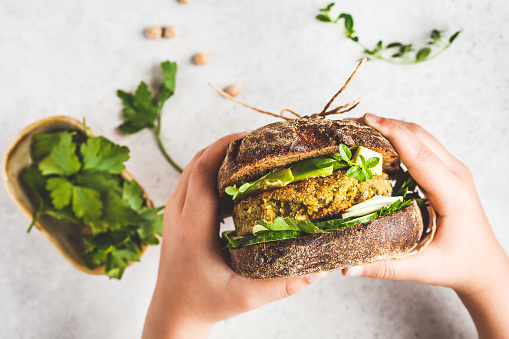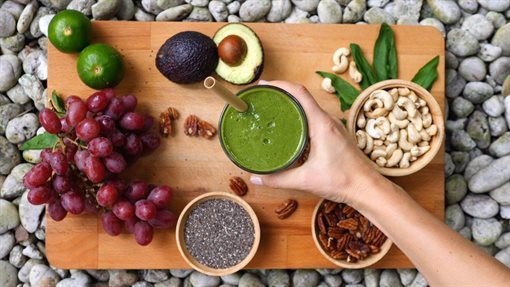The greatest impact of a disrupted climate will be on human food production and food availability.

Vegan food. Picture: iStock
We’ve seen the emergence of laboratory-grown meat and plant-based burgers, the rise of cauliflower pizza crusts and oat milk.
From bone broth to a hundred delicious ways with Brussels sprouts – what will stay and what will go?
A panel of expert dietitians and the Association for Dietetics in South Africa (Adsa) came to the table to highlight some of the significant nutritional trends that are likely to shape food choices over the next 10 years.
1. Plants are definitely the new rock stars
Celebrity culture in the US kicked off in January 2020 with the first plant-based major awards dinner served up to the stars at the Golden Globes.
This wasn’t a surprise. Globally, people have seen the phenomenal rise of more plant-based eating among the privileged who easily afford meat, a status symbol in the social hierarchy for millennia.
South African registered dietitian Kelly Scholtz says: “An affordable diet in the average SA household is already very much plant-based, with small amounts of meat, chicken or fish used when possible, with beans, peas, lentils and foods like milk and eggs providing alternative and good sources of protein.
“For those households with more access to expensive foods, there is likely to be more awareness of diet and nutrition trends.
“It is already clear that restaurants and retailers in SA are stocking more meat alternatives and vegetarian and vegan products in support of this trend.”

Picture: iStock
2. Alcohol? Not so much …
Globally, we have already seen the rise of nonalcoholic drinking options on bottle store shelves and the popularity of new kinds of alcohol abstinence programmes on social media that highlight the improved health and happier lifestyles of teetotallers.
Some top alcohol producers are increasingly focused on developing nonalcoholic options. Could this become a trend in SA in the 2020s?
Registered dietitian Retha Harmse says: “With alcohol being a non-nutrient and high in kilojoules, alcohol abstinence is a good thing for your health and waistline.
“With the worldwide focus on moving towards healthier behaviours and habits, I hope that alcohol consumption in the country will decrease in the new decade.”

Picture: iStock
3. The personalisation of your food consumption may be good or bad
As a consumer, you can get more of what you want, just the way you want it, and when you want it.
When it comes to your nutrition, though, this is good if it means it’s easier for you to access healthier food and food alternatives in the case where you really need to be gluten-free or lactose-free, for example.
But the drive for personalisation also includes the means for amateur self-diagnosis. However, the internet or commercially driven apps cannot replace the value of professionals with scientific education and patient experience.
Harmse says: “Unfortunately, many people self-diagnose intolerances and implement unnecessarily restrictive diets without professional advice.
“Dietary exclusions can be very expensive, possibly cause nutrient deficiencies, and might be the origin of an eating disorder or disguise one.”

Picture: Supplied
4. Sustainability of the planet is going to matter to you more, one way or another
The greatest impact of a disrupted climate will be on human food production and food availability.
The world’s agricultural system depends on the stability of the earth’s climate.
Scholtz says: “Individuals who care about sustainability will make conscious choices, such as more plant-based eating, more careful water use, less plastic packaging and more recycling.”
5. Shaping up to body positivity
“With the shift towards being more mindful and practising intuitive eating, there is a weight lifted from having to be ‘perfect’ according to an impossible media ideal,” says Harmse.
To find a dietitian in your area visit www.adsa.org.za
For more news your way, download The Citizen’s app for iOS and Android.





